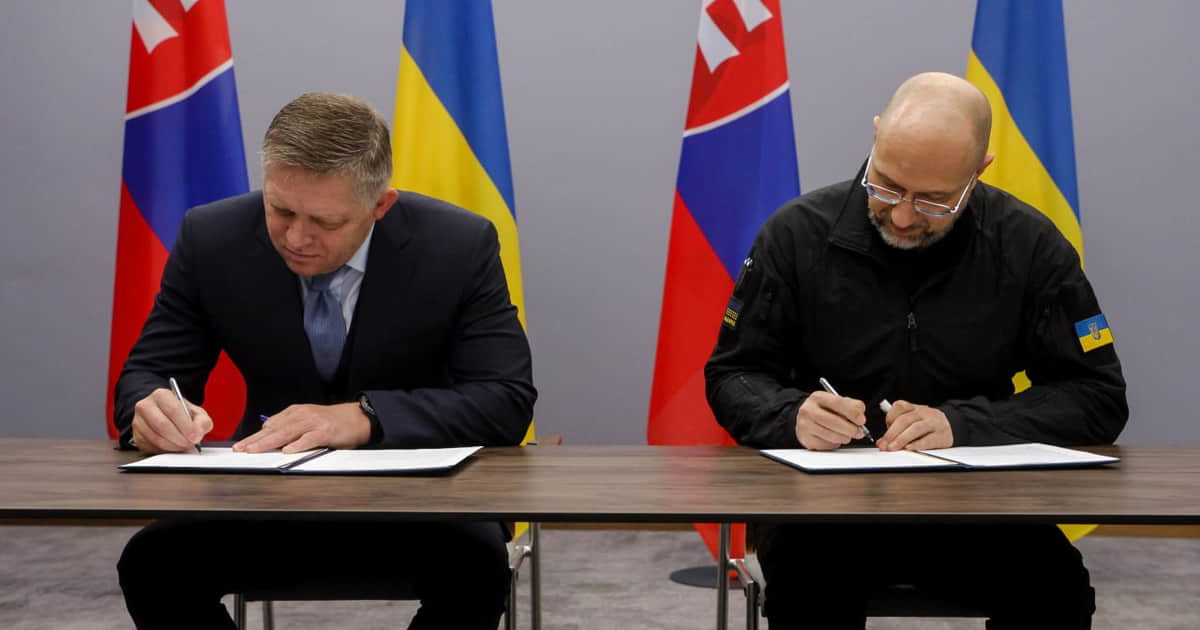How Ukraine managed to agree on cooperation with controversial Slovakia's government

A coalition of three parties was formed following the parliamentary elections in Slovakia. Two of those parties actively used anti-Ukrainian narratives. Right after the change of government, the new Prime Minister, Robert Fico, announced he would not send weapons to Ukraine any longer.
It was still unclear to the end what Slovakia's policy towards Ukraine would be. There are many unresolved issues in the bilateral relations even today. The answer to them could only be provided by a personal meeting of the country leaders.
On 24 January, such a meeting took place in Uzhhorod. Read more about the meeting and the prospects of cooperation between the countries in the article by Yurii Panchenko, European Pravda editor: Cooperation with anti-Ukrainian background: How Kyiv builds relations with Slovakia's controversial leader. In an exclusive comment for EuroPravda, Ukraine's Prime Minister Denys Shmyhal stated that this meeting opens up possibilities to develop a policy of 'new pragmatism' with the Slovakian government
The PMs, indeed, signed the statement, following the meeting in Uzhhorod to strengthen bilateral relations "based on mutual trust and respect," further cooperation aimed at "compliance with international law, including key provisions of the UN Charter, focused on respecting the territorial integrity and sovereignty of Ukraine within its internationally recognised borders. "This statement, fixed on paper, has more significance than the recent statements of the Slovak Prime Minister quoted earlier. We have evidence of unconditional support for our territorial integrity," commented Denis Shmyhal.
Among other positions in the joint statement: support by the Slovak government for Ukrainian citizens "forced to seek refuge" in Slovakia, support for Ukraine's European integration from Bratislava, and support for Volodymyr Zelenskyy's "peace formula." "I can say that the head of the Slovak government fully understands what is happening in Ukraine," commented the Ukrainian prime minister on the negotiations. Moreover, according to the Ukrainian prime minister, Fico assured his support for Ukraine Facility - an EU assistance programme under which Kyiv is expected to receive about 50 billion euros over four years.
But NATO is not mentioned in the joint statement, where Fico's positions are categorical. He is against Ukraine's accession to the Alliance. In addition to political issues, problems in bilateral trade were also discussed: Slovakia's agricultural embargo and the blockade of the border with Ukraine.
According to Shmyhal, the head of the Slovak government took time to analyse the Ukrainian proposal. A similar proposal was presented to the Polish Prime Minister Donald Tusk two days earlier. So, if the Polish government agrees, it significantly increases the chances of a positive response from Bratislava.
Also, according to Denys Shmygal, the parties discussed the participation of Slovak companies in the reconsturction of Ukraine, including the expansion of border checkpoints and the construction of a European-standard railway. It should be acknowledged: neither Robert Fico nor his government will become sincere friends of Ukraine. However, mutually beneficial cooperation with the current Slovak government is entirely possible.
The more contracts are signed between Kyiv and Bratislava, the fewer anti-Ukrainian statements from Slovak officials there will be.
Despite cautious optimism, relations with Robert Fico's Slovakia will be a minefield. Passing through it without losses will be a challenging task for Ukraine.
If you notice an error, select the required text and press Ctrl + Enter to report it to the editors.